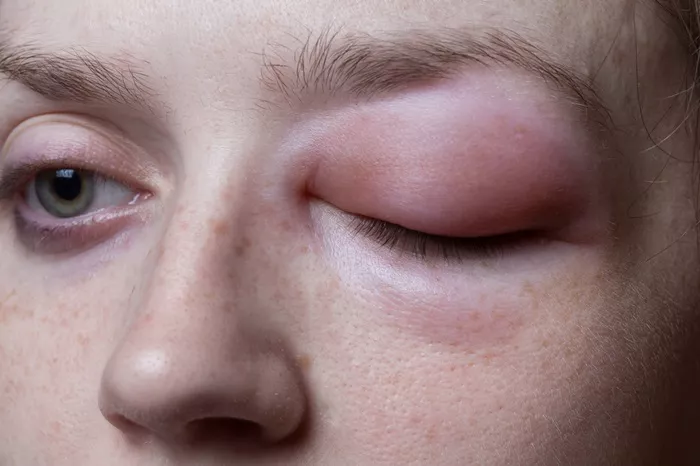Seasonal allergies, also known as hay fever or allergic rhinitis, affect millions of people across the world. These allergies occur when your immune system overreacts to certain environmental triggers, typically during specific times of the year. The most common triggers are pollen from trees, grasses, and weeds, but other allergens like mold spores or dust mites can also contribute to seasonal symptoms. For many people, these allergens cause a range of uncomfortable symptoms, from sneezing and a runny nose to itchy eyes and headaches. While seasonal allergies are not usually life-threatening, they can significantly impact one’s daily activities, work, and quality of life. Understanding how to manage and reduce the symptoms of seasonal allergies can make a big difference in how you feel during allergy season.
What Are Seasonal Allergies?
Seasonal allergies occur when your immune system reacts to allergens in the environment. These allergens are substances that typically do not cause a problem for most people but trigger an allergic reaction in susceptible individuals. When someone with seasonal allergies is exposed to allergens like pollen, their immune system incorrectly identifies these harmless particles as threats. This sets off an immune response, including the release of histamines, which are chemicals that cause symptoms like itching, swelling, and mucus production.
The symptoms of seasonal allergies can vary in severity. Some people experience mild symptoms that are mostly irritating, while others may have more severe reactions that significantly affect their daily life. Seasonal allergies are often seen during the spring, summer, and fall months, as different types of pollen are released at various times throughout the year. Trees release pollen in the spring, grasses in the summer, and weeds in the fall. Mold and dust mites can also contribute to allergy symptoms in certain climates.
Recognizing the Symptoms of Seasonal Allergies
The symptoms of seasonal allergies can be quite similar to those of a cold or other respiratory illnesses. This can make it difficult to determine what exactly is causing the discomfort. However, there are key symptoms that are more specific to allergies. Common symptoms of seasonal allergies include sneezing, a runny or stuffy nose, itchy or watery eyes, scratchy throat, coughing, and fatigue. These symptoms are usually triggered by exposure to allergens and can persist for several days or even weeks, depending on the allergen and the individual’s sensitivity. People with seasonal allergies may also experience post-nasal drip, which can lead to coughing or a sore throat. In some cases, people may have mild asthma symptoms, such as wheezing or shortness of breath, when exposed to allergens.
It’s important to note that these symptoms are usually worse during specific times of the year when certain allergens are most prevalent. For example, pollen counts tend to be highest in the early morning and late afternoon, and mold spores are more common during periods of high humidity. If you are experiencing symptoms that align with these patterns, it is likely that your discomfort is related to seasonal allergies.
How to Reduce Exposure to Allergens
One of the most effective ways to manage seasonal allergies is to reduce your exposure to the allergens that trigger your symptoms. This may not always be possible, especially if you spend a lot of time outdoors, but there are several steps you can take to minimize your exposure and keep symptoms under control.
First, it is important to monitor pollen levels in your area. Many websites and weather apps provide daily pollen counts, so you can plan your activities accordingly. If you know that the pollen count is high on a given day, try to limit outdoor activities, especially during the early morning and late afternoon when pollen levels tend to be at their peak. If you do need to go outside, try to avoid areas that are heavily covered with grass or flowers, as these are often sources of allergens.
When you are inside your home, you can take steps to reduce the amount of allergens that enter your living space. Keep windows and doors closed to prevent pollen from coming inside, especially during high pollen season. Use air conditioning with a clean filter to cool your home and filter out airborne particles. If possible, use an air purifier with a HEPA filter, which is designed to trap allergens like pollen, dust, and mold. It’s also important to keep your home clean by vacuuming regularly with a vacuum that has a HEPA filter. This will help remove dust mites, pet dander, and other allergens that may accumulate in carpets and upholstery.
If you spend a lot of time outside, it’s a good idea to change your clothes and shower when you come inside. Pollen can easily cling to your skin, hair, and clothing, so removing it as soon as possible will help reduce your overall exposure. Washing your face and hands can also help remove any allergens that have accumulated during your time outdoors. If you have pets, be sure to wash them regularly, as they can carry pollen and other allergens in their fur.
Medications for Seasonal Allergies
When reducing allergen exposure is not enough, medications can help control symptoms and make allergy season more bearable. There are several types of medications available to treat seasonal allergies, including antihistamines, nasal corticosteroids, decongestants, and eye drops. Each of these medications works in a different way to relieve symptoms and can be used alone or in combination for maximum effectiveness.
Antihistamines are the most common treatment for seasonal allergies. These medications work by blocking histamine, a chemical released by the immune system during an allergic reaction. By blocking histamine, antihistamines help reduce symptoms like sneezing, itching, and a runny nose. There are many over-the-counter antihistamines available, including loratadine (Claritin), cetirizine (Zyrtec), and fexofenadine (Allegra). Some antihistamines may cause drowsiness, so it is important to choose a non-drowsy option if you plan to take them during the day.
Nasal corticosteroids are another effective treatment for seasonal allergies. These medications, which include fluticasone (Flonase) and mometasone (Nasonex), work by reducing inflammation in the nasal passages, helping to relieve symptoms like nasal congestion and runny nose. Nasal steroids are available over the counter or by prescription and are generally considered safe for long-term use when used as directed.
Decongestants are often used to relieve nasal congestion caused by seasonal allergies. These medications work by narrowing the blood vessels in the nasal passages, which reduces swelling and allows air to flow more easily through the nose. Decongestants are available in oral or nasal spray form. However, they should not be used for more than a few days at a time, as prolonged use can lead to rebound congestion.
Eye drops are another useful treatment for people with allergy-related eye symptoms, such as itching and watering. Antihistamine eye drops, like ketotifen (Zaditor) or olopatadine (Pataday), can help relieve these symptoms quickly. If you have persistent eye irritation, you may want to consider using preservative-free eye drops, as they are less likely to cause further irritation.
For individuals with severe allergies that do not respond to over-the-counter treatments, prescription medications or immunotherapy may be necessary. Immunotherapy involves receiving regular allergy shots or sublingual tablets that gradually desensitize the immune system to specific allergens over time. This treatment is typically reserved for people with severe, persistent allergies and should be discussed with a healthcare provider.
Natural Remedies for Seasonal Allergies
In addition to medications, many people find relief from seasonal allergies through natural remedies. While these remedies may not be as effective as pharmaceutical treatments, they can offer some symptom relief and help improve overall well-being.
Saline nasal irrigation is one of the most commonly used natural remedies for seasonal allergies. By rinsing the nasal passages with a saline solution, you can help clear out pollen, dust, and other allergens that may be causing your symptoms. A neti pot or saline spray can be used to perform nasal irrigation, which can provide immediate relief for nasal congestion and irritation.
Honey is another popular natural remedy for seasonal allergies. The idea behind this remedy is that local honey contains small amounts of pollen, which may help desensitize the body to allergens over time. While there is limited scientific evidence to support this theory, some people report that consuming local honey regularly can help reduce their allergy symptoms.
Other natural remedies for seasonal allergies include herbal supplements like butterbur, quercetin, and stinging nettle. These herbs are believed to have anti-inflammatory and antihistamine properties, which may help reduce allergy symptoms. However, it is important to consult with a healthcare provider before using these remedies, especially if you are pregnant, breastfeeding, or taking prescription medications.
Essential oils, such as peppermint, eucalyptus, and lavender, are also commonly used to relieve allergy symptoms. These oils can be inhaled or used in a diffuser to help open up the airways and reduce inflammation. However, essential oils should be used with caution, as they can cause allergic reactions in some people.
When to See a Doctor
While most cases of seasonal allergies can be managed with lifestyle changes and over-the-counter treatments, there are times when you should seek medical advice. If your symptoms are severe, persistent, or interfering with your daily life, it is important to consult a healthcare provider. Additionally, if you experience difficulty breathing, chest tightness, or swelling around your eyes, lips, or throat, you should seek immediate medical attention, as these could be signs of a more serious allergic reaction.
If over-the-counter medications are not providing sufficient relief, a doctor may prescribe stronger medications or recommend immunotherapy. Allergy testing can also help identify specific allergens that are triggering your symptoms, allowing for a more targeted treatment approach.
Conclusion
Seasonal allergies are a common condition that can significantly impact your daily life, but with the right strategies, they can be managed effectively. Reducing exposure to allergens, using appropriate medications, and considering natural remedies are all important steps in minimizing the discomfort caused by seasonal allergies. By taking proactive measures and working with a healthcare provider when needed, you can reduce the impact of seasonal allergies and enjoy a more comfortable and active lifestyle throughout the allergy season.
Related Topics

































